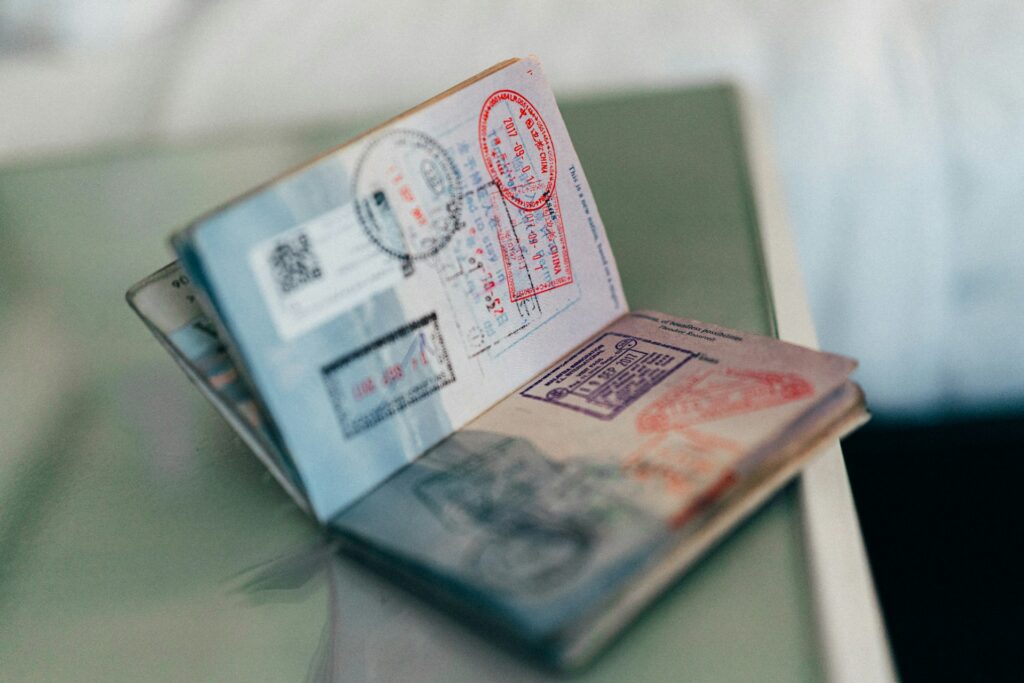2025 is here, and travelers heading to Europe can expect significant updates to travel policies, regulations, and systems. Whether you’re already a Boardwalk agent and are planning dream vacations for your clients (or yourself!) or you’re new to the travel world and want to know more about how to become a travel agent without experience, staying informed about these European travel changes is essential.
Here’s an overview of what’s on the horizon.
New Travel Authorization Systems
One of the biggest changes in European travel is the introduction of new authorization systems designed to improve security and streamline entry processes.
European Travel Information and Authorization System (ETIAS)
Starting mid-2025, travelers from visa-exempt countries—such as the US, UK, Canada, and Australia—will need to apply for an ETIAS before visiting the Schengen Area. This electronic authorization will cost €7 (about $7.50 USD), be valid for three years, and cover multiple entries. The application is straightforward and must be completed online, with decisions typically made within minutes but approval may take up to 96 hours, according to authorities.
To apply, travelers will need a valid passport, an email address, and a debit or credit card for payment. The process includes completing an online form with personal details, travel history, and security questions. For travelers with denied applications, there will be an appeals process or guidance on resolving the issue. Submitting applications well in advance of travel is highly recommended to avoid last-minute issues.
Entry/Exit System (EES)
The EES, set to debut in 2025, will replace traditional passport stamping. Instead, travelers’ biometric data, such as fingerprints and facial images, will be digitally registered upon entry and exit. This change will make border crossings more efficient while enhancing security measures.
The EES is expected to speed up border checks and reduce long lines, especially during peak travel seasons. Travelers are encouraged to use automated kiosks where available, making the process even smoother. 29 EU nations are planning to use the system, so this will apply to most European trips you may be booking for your clients or yourself.

The UK’s Electronic Travel Authorization (ETA)
Travelers heading to the UK will also need to prepare for the Electronic Travel Authorization (ETA) system. Rolling out in January 2025, this requirement will apply to visitors from countries like the US and Canada, with EU citizens needing an ETA starting April 2025.
The ETA costs £10 (about $12.75 USD) and is valid for two years or until the traveler’s passport expires, whichever comes first. Travelers are allowed multiple entries for stays of up to six months. Applications must be completed online, and approvals are usually issued within three working days. This system aims to enhance border security while offering a seamless experience for travelers.
To apply for an ETA, travelers will need to provide passport details, travel plans, and answers to security questions. The UK government highlights that the system is designed to prevent unauthorized entry while maintaining an efficient flow of legitimate travelers. Business travelers and frequent visitors will benefit from the multi-entry validity, making it a convenient solution for regular trips.
Expansion of the Schengen Area
In a milestone move for European travel changes, Bulgaria and Romania will join the Schengen Area on January 1, 2025. This expansion eliminates internal border controls between these countries and the rest of the Schengen members, making travel across Europe even more convenient. For travelers and those looking to become a travel agent, this change simplifies itineraries and allows for greater flexibility.
Bulgaria and Romania offer a wealth of attractions, from Bulgaria’s Black Sea beaches to Romania’s Transylvanian castles and vibrant cities. Their inclusion in the Schengen Area will make it easier for travelers to explore these destinations as part of broader European itineraries.
The Schengen Area, the EU’s passport-free travel area, covers 29 countries–the majority of EU countries, with the exception of Ireland, which has opted out and instead operates a separate Common Travel Area with the United Kingdom. Additionally, Cyprus is undergoing an evaluation process to determine its readiness to join the Schengen Area.
Four non-EU countries—Iceland, Norway, Switzerland, and Liechtenstein—are also part of the Schengen Area.

Tourist Taxes on the Rise
Several European destinations are introducing or increasing tourist taxes in 2025 to address sustainability and overtourism concerns:
- Portugal: Madeira’s €3 hiking fee and Évora’s new tourist tax will support environmental preservation.
- Italy: Venice will raise its tourist tax to €10 for last-minute visitors during peak days starting April 2025.
- Greece: Daily tourist taxes will increase significantly during the high season, reflecting efforts to manage tourism’s impact.
These taxes underscore the importance of budgeting for additional travel costs. Travelers can use online tools or consult with travel agents to understand how these fees will impact their trip budgets. For example, apps that calculate total costs, including taxes, can be invaluable.
Sustainability and Responsible Travel
As countries implement these new European travel changes, there is a clear focus on sustainability and responsible tourism. Tourist taxes, for instance, are often reinvested into infrastructure, waste management, and preserving natural and cultural landmarks.
Travelers can contribute by choosing eco-friendly accommodations, reducing waste, and supporting local businesses. Responsible tourism not only enhances the travel experience but also ensures the preservation of destinations for future generations.
How Travel Agents Are Adapting
With these sweeping European travel changes, travel agents will play a vital role in ensuring seamless experiences for their clients. Those aiming to become a travel agent must familiarize themselves with new systems like ETIAS, EES, and ETA to provide accurate guidance. Agents will also need to stay updated on rising costs, such as tourist taxes, to help clients plan effectively.
Many travel agencies are investing in training programs and technological tools to keep their agents informed. For example, platforms that track visa and tax requirements in real-time can be invaluable for crafting accurate itineraries. Travel agents who stay ahead of these changes will be well-positioned to offer premium services, ensuring their clients’ trips go off without a hitch.
By mastering these updates, agents can offer invaluable expertise, making travel less daunting for their customers. Continuous education and training will be critical, especially for those entering the industry. Becoming a travel agent in today’s climate means navigating an evolving landscape with confidence and precision.
Boardwalk Travel Is the Best Host Agency for You
For travel agents navigating these European travel changes, the right support system is essential. Boardwalk Travel Agency stands out as the best host agency for travel agents. They offer unparalleled training and education, ensuring agents are equipped to handle the latest travel developments. Paired with some of the highest commission rates and partnerships with top-tier travel suppliers, Boardwalk Travel Agency provides the tools and resources needed to thrive in this exciting profession.
Additionally, Boardwalk Travel Agency offers workshops on navigating new travel systems like ETIAS and ETA. Their resources include live webinars, detailed guides, and one-on-one mentorship programs. For aspiring agents, this support network is invaluable, making it easier than ever to become a travel agent who excels in the industry.
Whether you’re new to the field or a seasoned professional, choosing Boardwalk Travel Agency sets you up for success.
Closing Thoughts
The travel landscape in Europe is transforming in 2025, with new authorization systems, expanded Schengen membership, and rising tourist taxes reshaping how we explore the continent. Staying informed and prepared is essential for travelers and travel agents alike. By understanding these changes and leveraging expert guidance, you can ensure a seamless and enjoyable European adventure.
For aspiring agents, there’s never been a better time to learn how to become a travel agent, especially with the support of Boardwalk Travel Agency. Let’s embrace the future of travel together–join the Boardwalk team today!

